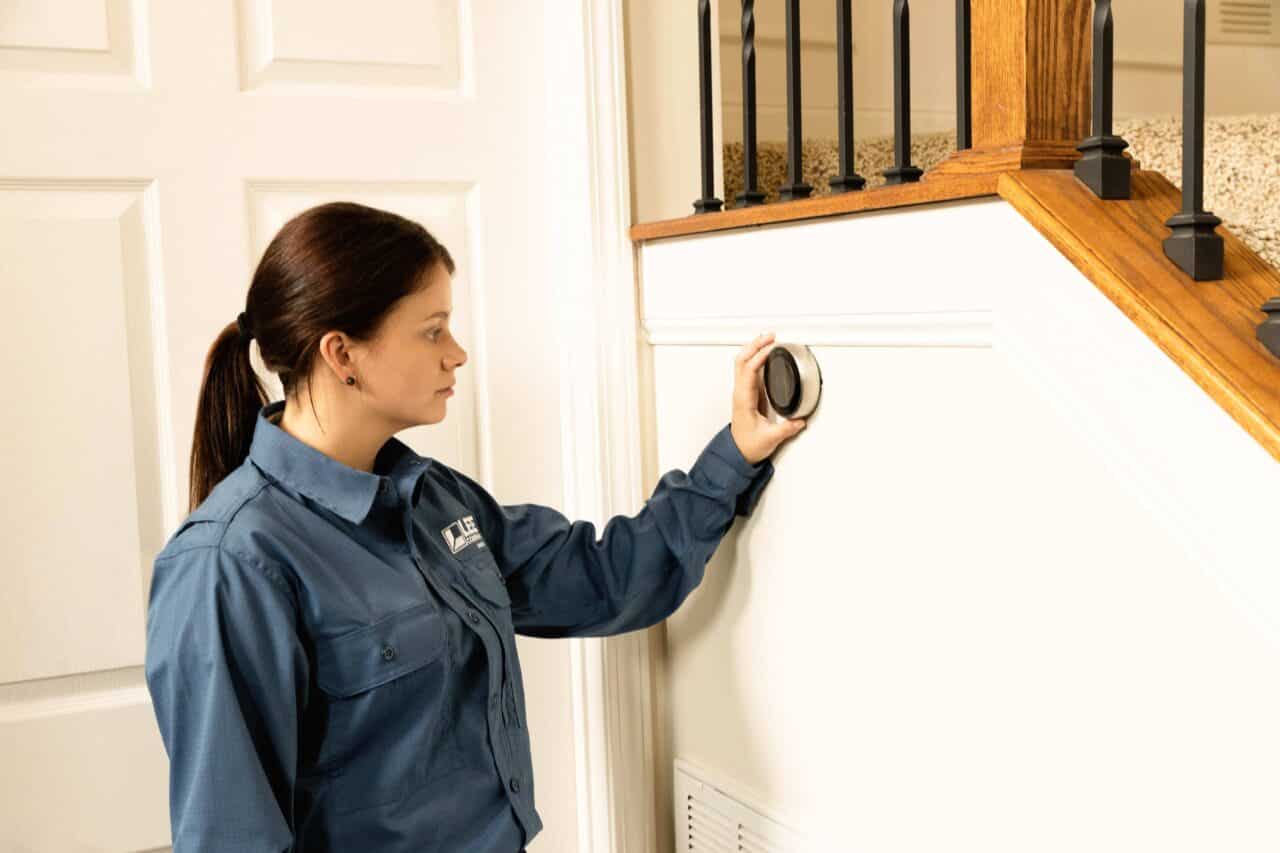As the days get shorter and the temperatures drop below freezing, it’s time to start thinking about winterizing your home — and that includes your heating system. No one wants to be left in the cold, so it’s important to be proactive and take care of any common heating problems before they arise.
Here are 5 home heating problems that homeowners face during the winter, along with tips on how to prevent them!
1. Not Enough Heat
Heating issues are often caused by a lack of maintenance. If you haven’t had your heating system serviced in a while, it may not be working as efficiently as it should be. As a result, your home may not be getting enough heat.
But if you’re the homeowner who stays up to date on maintenance – and your heating system is just not getting the job done – there are a few possible reasons why:
- The heating system is too small for the size of your home
- The vents are blocked
- There are blockages or leaks in the ductwork
- The thermostat is not set correctly
Extra cold weather can make these heat issues more apparent. But if you find yourself reaching for a blanket on a regular basis, here’s what you can do:
If your heating system is too small, the only solution is to replace it with a bigger one. But if the heating system is properly sized, you can try adjusting the thermostat, cleaning the ductwork, or adding insulation to your home.
Your vents play a critical role in heating your home, so make sure they’re not blocked by furniture or other objects.
If the vents are clear and you’re still not getting enough heat, check the ductwork for leaks or blockages. These can be repaired or resealed by a heating and cooling professional.
The thermostat is responsible for regulating the temperature in your home, so it’s important to make sure it’s set correctly. If you’re not getting enough heat, try turning up the thermostat a few degrees.
2. High Energy Bills
Have you noticed your energy bills going up, even though you’re not using any more heat than usual? Winter heating bills can be expensive, but they shouldn’t be through the roof.
A number of heating-related issues can cause this spike in costs, such as:
- An inefficient heating system
- Leaky ductwork
- Poor insulation
- Doors or windows that are not properly sealed
If your heating bills are higher than normal, here are a few things you can do to lower them:
- Invest in a programmable thermostat or smart thermostat so you can control the temperature in your home more efficiently.
- Make sure your heating system is serviced regularly to ensure it’s running as efficiently as possible.
- Check the ductwork for leaks or damage and have them repaired by a heating professional.
- Add insulation to your home to keep the heat in and lower your energy bills.
- Make sure doors and windows are properly sealed to prevent drafts.
3. Uneven Heating
Have you ever noticed that some rooms in your home are much warmer than others? This might not have anything to do with your heating system problems, and instead could be caused by the layout of your home or drafts coming in from outside.
If you have a two-story home, the upper level is likely to be warmer than the lower level because heat rises. If you have large windows, they might also be causing drafts and making the room colder.
Adding a space heater to a colder room might be a temporary fix, but there are also some long-term solutions:
- Install insulation in your attic to prevent heat from escaping through the roof
- Check doors and windows for drafts and seal them with weatherstripping or caulk
- Add curtains or blinds to large windows to help keep the heat in
- Consider installing a mini-split system to control the heating and cooling for each individual room
4. Noisy Heating System
A heater will have a low hum when it’s running, but if you start to hear banging, popping, or other strange noises, there might be a problem with your heating system.
Common causes of noisy heating systems include:
- Loose bolts or screws
- Worn out bearings
- Dirty blowers
- Failing motors
Ignoring these problems won’t make them go away, and could actually make the problem worse (and lead to more costly repairs!).
You can do a visual inspection of your heating system to see if there are any loose or worn-out parts, but it’s best to leave the diagnosis and repairs to a heating and cooling professional.
5. Pilot Light Keeps Going Out
If you have a gas furnace, one common winter HVAC problem is that the pilot light keeps going out. This can be caused by a drafty chimney or vent pipe, which lets cold air into the furnace and causes the little flame to go out. If this happens, you can simply relight the pilot light.
Another common cause is a buildup of dirt or grime on the pilot light mouth, which can be cleaned gently with a wire brush.
If the pilot light continues to give you trouble, it’s best to call a knowledgeable heating technician to take a look and make sure there isn’t a more serious problem like a:
- Cracked heat exchanger or thermocouple
- Clogged or leaking gas valves
- Low gas supply
These are just some of the most common heating problems that homeowners experience during the winter months… Still not sure what’s wrong with your heater? Lee Company has a qualified team of heating and cooling professionals who can troubleshoot home heating problems and get your system up and running again. Give us a call today for all your winter heating needs. Stay warm!


